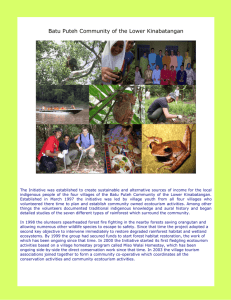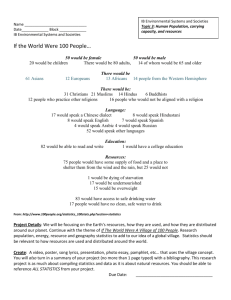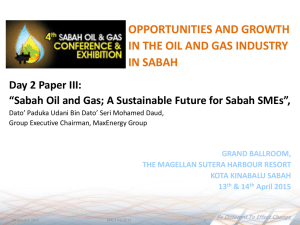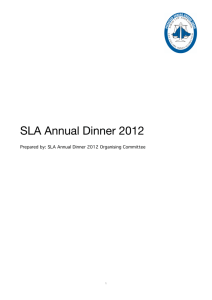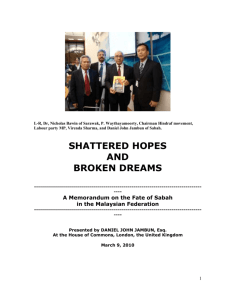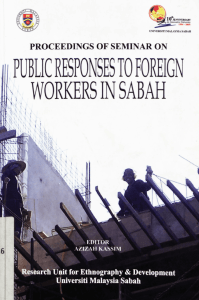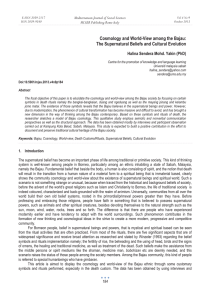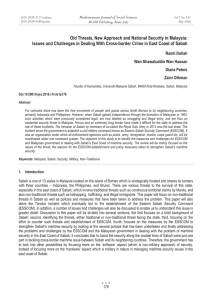information sheet
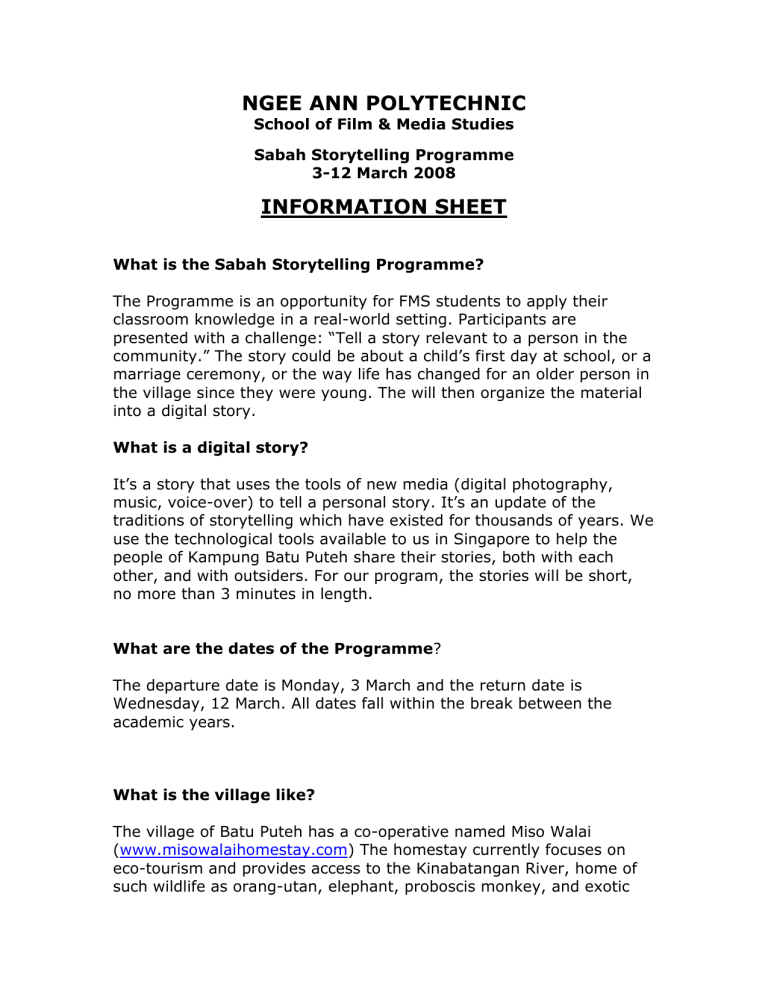
NGEE ANN POLYTECHNIC
School of Film & Media Studies
Sabah Storytelling Programme
3-12 March 2008
INFORMATION SHEET
What is the Sabah Storytelling Programme?
The Programme is an opportunity for FMS students to apply their classroom knowledge in a real-world setting. Participants are presented with a challenge: “Tell a story relevant to a person in the community.” The story could be about a child’s first day at school, or a marriage ceremony, or the way life has changed for an older person in the village since they were young. The will then organize the material into a digital story.
What is a digital story?
It’s a story that uses the tools of new media (digital photography, music, voice-over) to tell a personal story. It’s an update of the traditions of storytelling which have existed for thousands of years. We use the technological tools available to us in Singapore to help the people of Kampung Batu Puteh share their stories, both with each other, and with outsiders. For our program, the stories will be short, no more than 3 minutes in length.
What are the dates of the Programme?
The departure date is Monday, 3 March and the return date is
Wednesday, 12 March. All dates fall within the break between the academic years.
What is the village like?
The village of Batu Puteh has a co-operative named Miso Walai
( www.misowalaihomestay.com
) The homestay currently focuses on eco-tourism and provides access to the Kinabatangan River, home of such wildlife as orang-utan, elephant, proboscis monkey, and exotic
birdlife. The participants will stay in a homestay with a local family.
They will take their meals with the family, and will have this family as their primary research subjects. Two students (of the same gender) will stay with each family. They will have access to a flush toilet (Asian style) and running water for bathing. The home will have electricity.
The family will make sure the participants have safely cooked food and clean drinking water. The quality of life will likely be lower than what is experienced in Singapore, but the homes will provide a safe, communal environment conducive to cultural immersion.
What will participants do during the day?
This is will be left largely up to the participants. Small groups of students will be provided with a translator, who can lead them through the village and surrounding areas, rich with bio-diversity and cultural history. The students must research a story they find interesting, either about a person or a location in the community, then organize this project into a 3 minute digital story.
Will the entire trip be spent in the village?
No. The first night of the program will be spent in Sepilok, a suburb to the city of Sandakan. In Sepilok, the students will take a trip to the
Sepilok Orangutan Sanctuary. After the assignment is complete, the students will travel by bus to Semporna, where they will visit the tropical islands off the coast of Sabah, and can enjoy snorkeling or relaxing on the beach. Accomodation in Sepilok and Semporna will be in hostel-style bunk beds.
What are the costs of the Programme?
At the time of printing of the application, the costs of the program are not finalized. The approximate cost is 800 SGD. However, most students will qualify for a 50% subsidy.
What do the costs include?
*9 nights of accommodation
*3 meals per day beginning with lunch on 3 March until dinner on 12 March.
*Round-trip airfare
*All ground transport in Sabah
*Admission to Sepilok Orang-Utan Sanctuary
*Admission to Tunku Sankaran Marine Park
*Health insurance including emergency evacuation
What other costs should participants prepare for?
*Personal Souvenirs
*Thank you gift for host family
Is there a plan to deal with an emergency?
All guides and translators in the cooperative are first aid and wilderness response trained. The co-op is aware of the concerns the
Poly has to maintain the safety and security of the students. They have a general health clinic in the village. In case of a more serious emergency, the village is 25mins by sealed road from the
Kinabatangan Hospital. The hospital is fully equipped with emergency response facilities, 2 ambulances and airborne/flying doctor support.
Our guides carry standard first aid kits with them to deal with basic accident and trauma/shock.
Where can I go for more information?
The program is run by the Ngee Ann Polytechnic School of Film &
Media studies. The staff in charge is Ryan Ingrassia (email: irs2@np.edu.sg
phone: 6460-6697).
